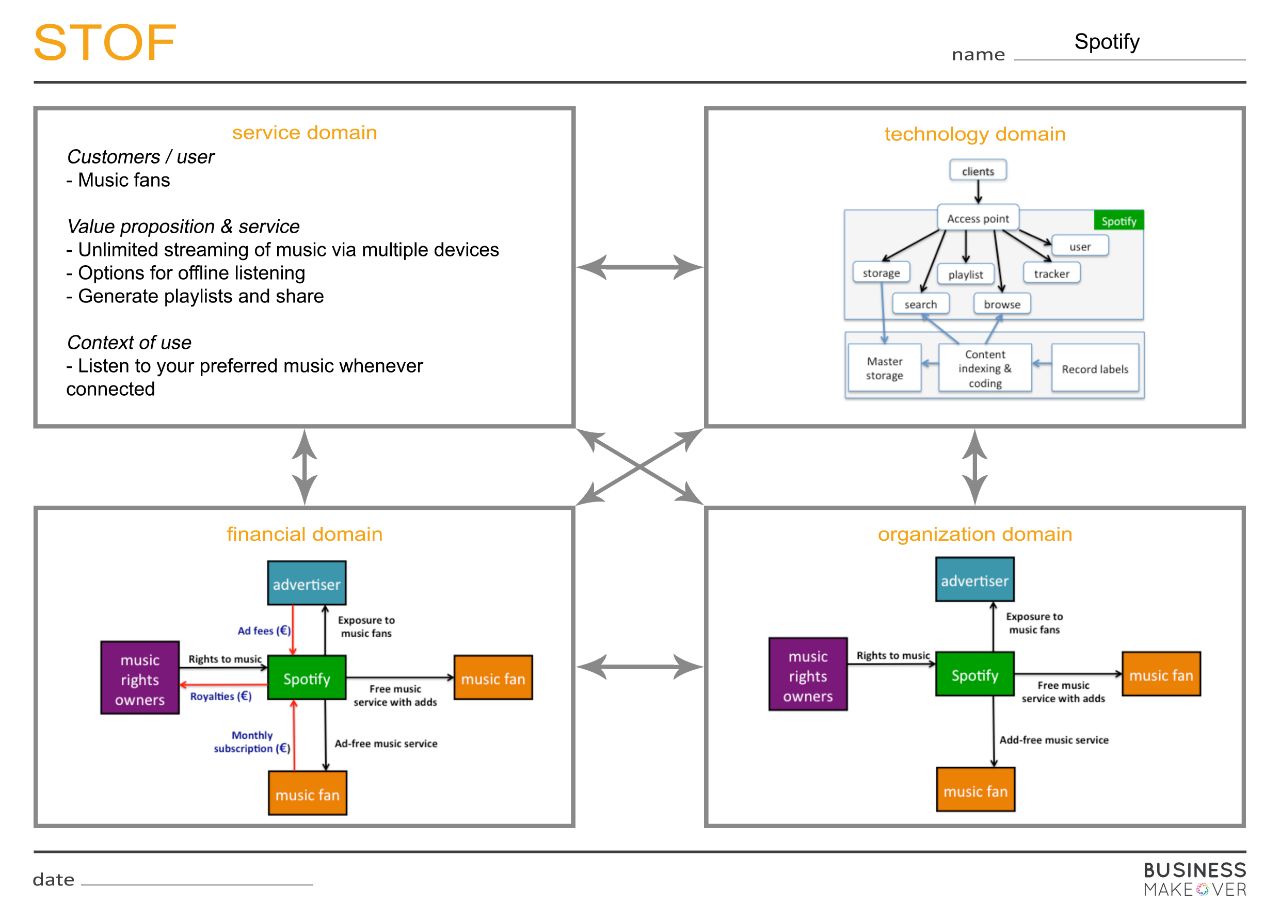STOF

Tips for use
Use the STOF Business Model Canvas template (page 4) to make a large printout and use it to brainstorm about your business model. Get inspired from the STOF Business Model of Spotify (page 5).
How to use
STOF Business Models are based on four interrelated perspectives or domains, i.e. Service domain (value proposition and customers), Technology domain (architecture and systems), Organisation domain (partners and collaboration) and Finance domain (cost and revenues). You can make a STOF business model by sketching the key variables in each domain. The questions with each variable will help you to find the answers.
Service domain
Customers and end-users
- Who is the customer? Who will pay for the service?
- Who is the end-user? Who will be using the service?
Value proposition and service offering
- In what specific situation(s) would people want to buy or use the service (use cases)?
- What does the service do for the customer or enduser?
- What are the unique and distinguishing benefits of the service?
- What is the actual offering provided to the customer or enduser?
- What are the distinguishable elements of the service?
Technology domain
Technical Functionality
- What (business) functions does the service require?
- What is the global architecture of the service offering?
Applications (user applications running on the technological system)
- What user applications should be running on the technological system ( e.g. for communication, interaction, content distribution, transactions)?
- How are customer profiles and privacy managed?
- How is secure access to, and use of, services arranged?
Organization domain
Actors
- Which business roles are required to create and deliver the service?
- Which actors can and want to cooperate and take up the business roles?
Actors' resources & capabilities
- What are capabilities and resources that these actors can or should provide?
- Which resources and capabilities are critical? Hence which actors are preferable?
Finance domain
Costs
- What is the cost structure of the service?
- Investment costs, fixed costs and variable costs?
Revenues
- What is the revenue model behind the service or product?
- direct payments: one-off sale, subscriptions, licenses, pay-by-tweet, …
- indirect payments: advertising, sponsoring, subsidies, commissions, …
Financial arrangements
- How are investments, costs and revenues divided over the actors?